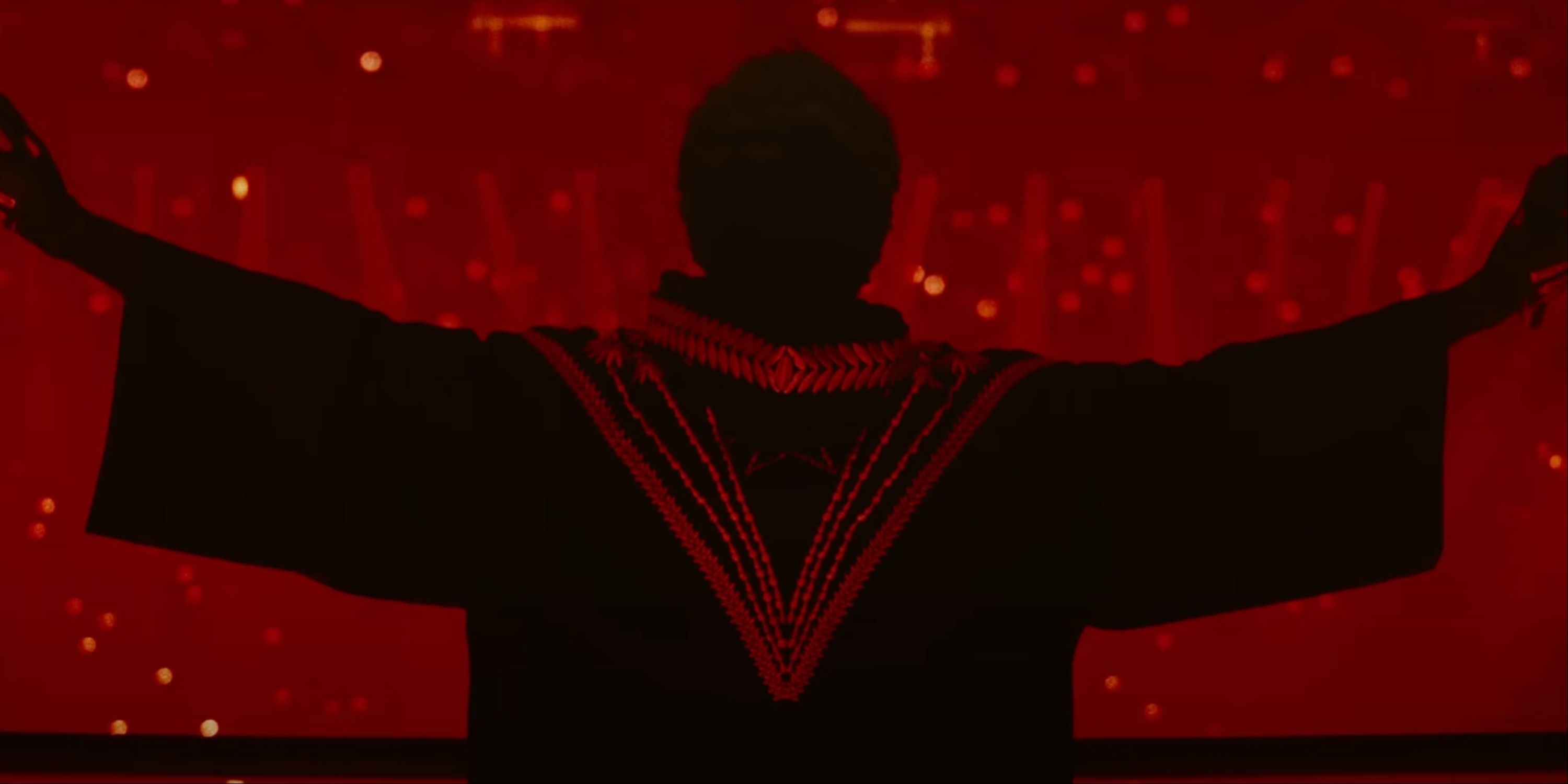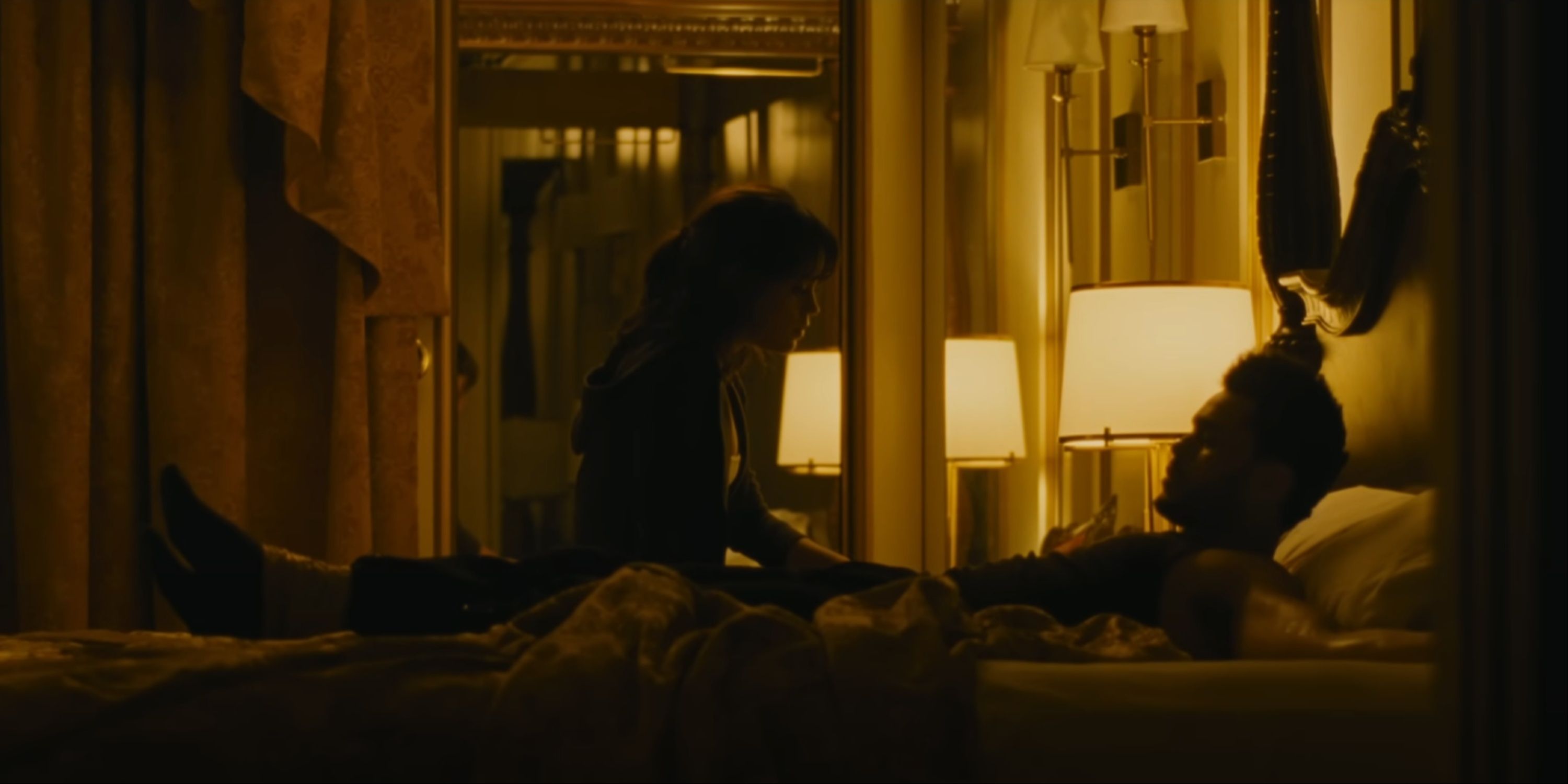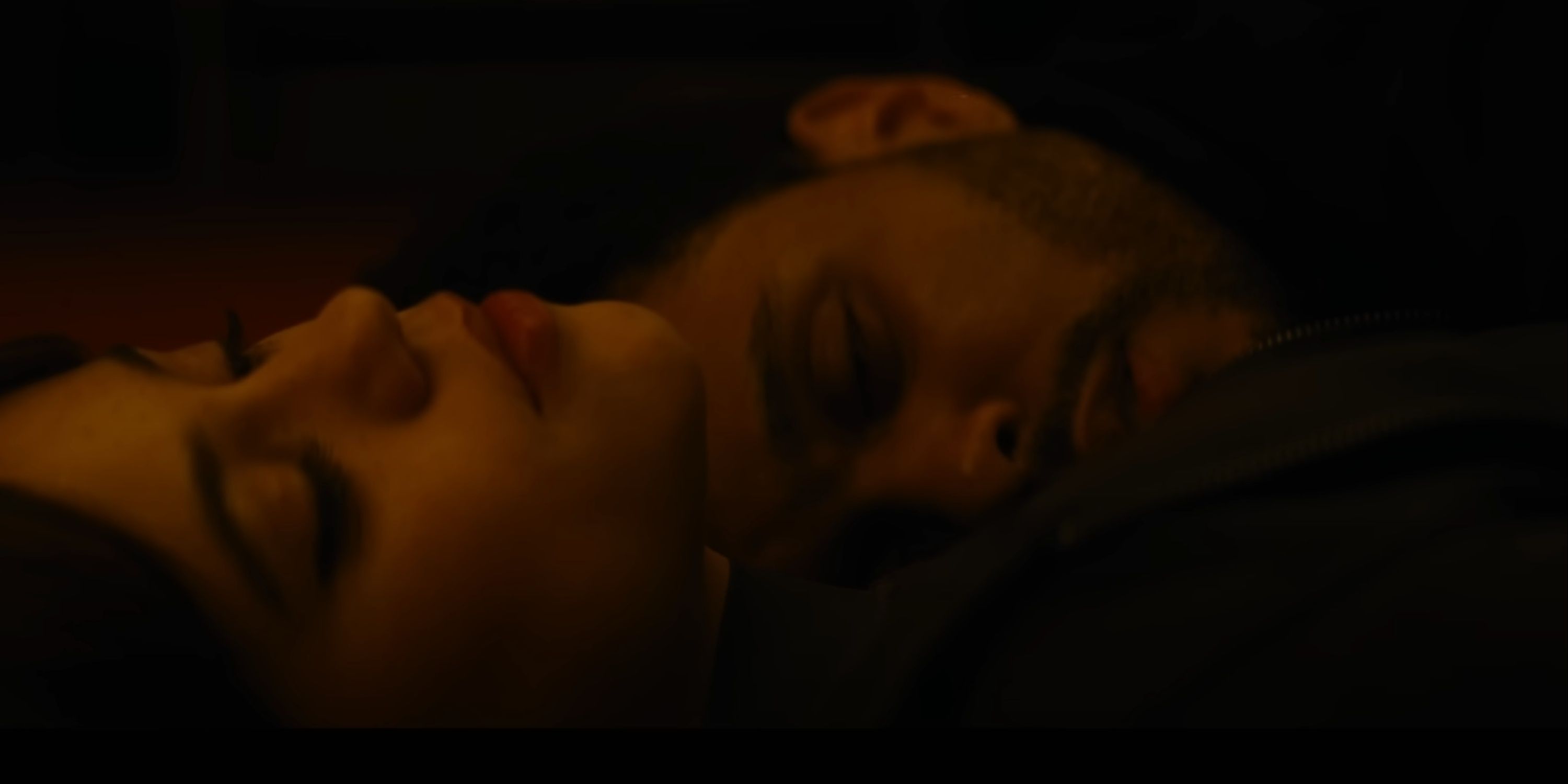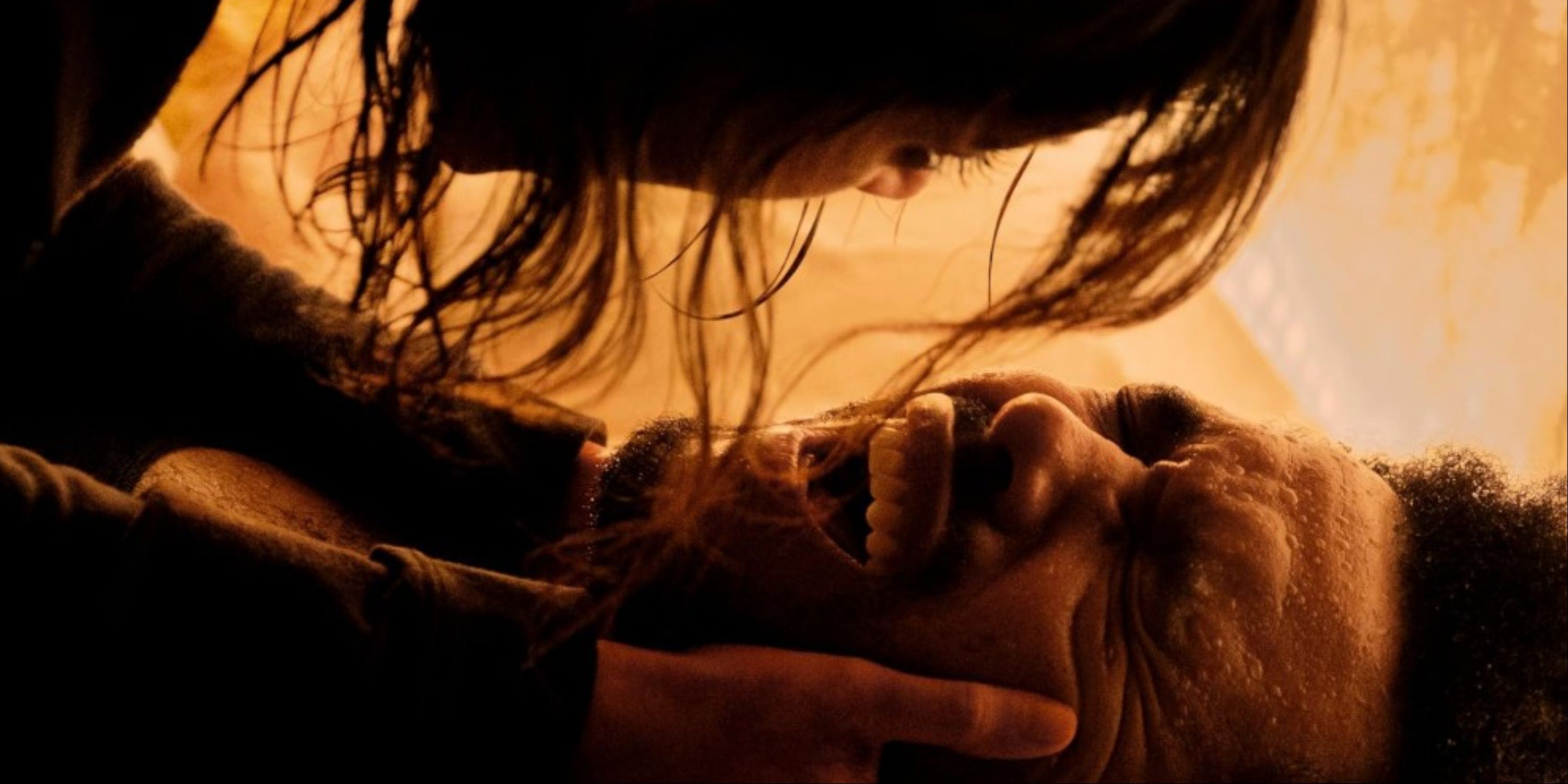Hurry Up Tomorrow is the culmination of The Weeknd’s growth and journey of over a decade of platinum-smashing, chart-topping music and countless accolades, a genius and symbolic movie co-written by Abel Tesfaye (aka The Weeknd) himself and directed by visionary auteur Trey Edward Shults, who previously made It Comes at Night and 2019’s Waves.
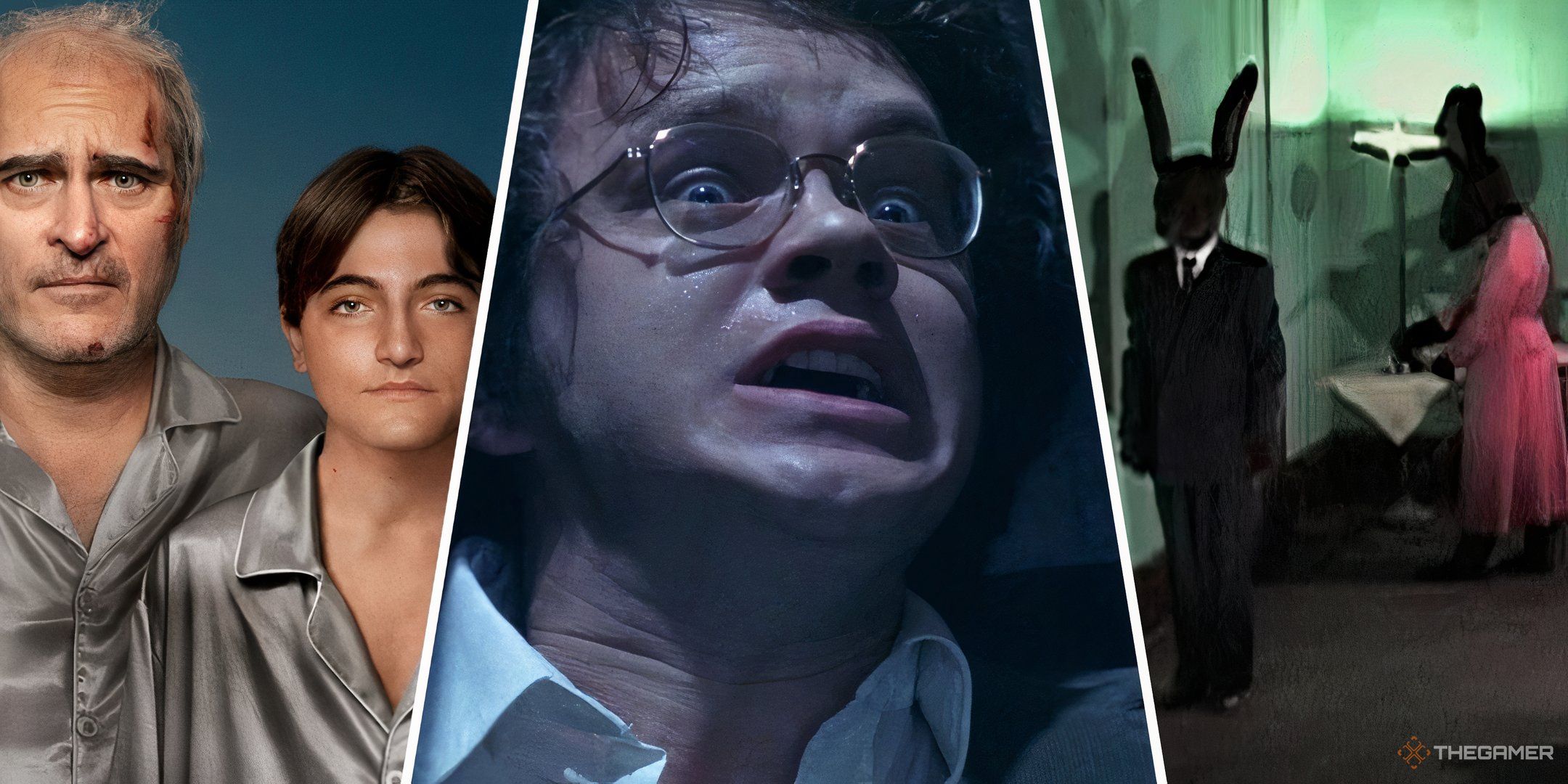
Related
10 Psychological Thrillers That Mess With Your Mind
Prepare yourself for these eerie and atmospheric selections.
To fans of The Weeknd and those who love and appreciate filmmaking, this movie is easily a masterpiece. There’s no other visuals and editing quite like what you experience in Hurry Up Tomorrow, and the entire story is essentially a deeply layered psychoanalysis of The Weeknd’s mind. Many things can therefore be quite confusing, but hopefully this helps clear everything up.
For the purposes of this explainer, Abel and The Weeknd’s names will be used interchangeably to mean the same person.
Hurry Up Tomorrow Ending, Explained
The story of Hurry Up Tomorrow follows Abel Tesfaye’s The Weeknd persona through a meta-narrative lens. He goes through an intense psychological ordeal where he can’t perform due to his voice being lost, not as a result of a medical condition, but because of a rough breakup that he can’t process, in which he was the toxic party.
What follows next is a surreal and mind-bending psychological odyssey driven by stylish transitions and camerawork, impeccable sound design, and The Weeknd’s songs being used effectively throughout.
Quitting mid-concert because he can’t go on performing, Abel runs into Jenna Ortega’s Anima backstage, and the duo have the time of their lives on a fun-filled night, with an atmosphere reminiscent of Anora. They end things off by evading his manager, Lee, and escaping to a private hotel room.
From here, things turn very unexpected. They shared a beautiful moment in the hotel room, which helps curb Abel’s loneliness and sees Anima admiring his new song, but the next day, Ortega’s Anima gets emotionally distraught when The Weeknd needs to leave, thereby throwing an object at him, knocking him unconscious, and imprisoning him in the hotel room by tying Abel to the bed.
Throughout the movie, you know that Anima is not a mentally stable person and has mental health problems of her own she’s dealing with, and the third act sees her turn into a murderous, obsessed fan to the tune of Kathy Bates’ Annie Wilkes from Stephen King’s Misery.
Anima tortures The Weeknd with his own music, first ‘Blinding Lights’ from After Hours and then ‘Gasoline’ from Dawn FM, explaining their deep metaphorical meanings and symbolism in a twisted and maniacal way, even dancing along, in a moment that feels straight from Christian Bale’s Patrick Bateman in American Psycho.
When it comes time for a third torture song, Abel’s manager arrives at their door, tracking The Weeknd’s location through his phone. Anima confronts Lee and ends up killing him in the process, violently stabbing him through the neck after a struggle. Distraught, she proceeds to set The Weeknd on fire by pouring gasoline on him.
This then culminates in The Weeknd being able to sing again, reciting the lyrics of his song ‘Hurry Up Tomorrow’ a cappella to Ortega’s Anima while still tied to the bed. And as a result, Anima decides to free Abel. You see a shot of the empty bed and The Weeknd walking down the hallway as the room burns behind him.
Then, suddenly, the scene smoothly transitions from Abel walking in the hotel’s hallway to being in his backstage dressing room before a concert, making you question if all of it was in his head, or whether Anima and Lee were even real.
The opening scene backstage with the pre-show sparring between The Weeknd and Barry Keoghan’s Lee and the ending shot of a close-up on The Weeknd’s face were a nod to Martin Scorsese’s Raging Bull.
Jenna Ortega’s Anima And Barry Keoghan’s Lee Characters, Explained
Who Is Anima?
Analyzing Jenna Ortega’s and Barry Keoghan’s characters in Hurry Up Tomorrow is the ultimate puzzle key to explaining the movie and its overall meaning.
While Ortega’s Anima comes off as a diehard, obsessed fan with a disturbed persona, who literally just set a house on fire on her way to The Weeknd’s concert. It’s much more symbolic than that. Anima is actually more psychological than existing as a real person. In fact, Anima and Abel are one person.
The house Anima burns down can be interpreted as The Weeknd’s childhood home, symbolizing the destruction of his foundation and childhood innocence. It’s the reason Abel is broken and fractured at the start of the film.
The name, Anima, comes from the psychological archetype theorized by Carl Jung that represents the feminine side of a man’s psyche linked to emotion and connection. Throughout the film, you see how Abel’s girlfriend not answering his texts and voicemails drives his sanity to the brink and causes him to sink further and further into a dark place.
Therefore, Jenna Ortega’s character is the anima of The Weeknd’s mind, a companion who can empathize with him and fulfill that sense of connection he was craving, but also forces him to confront his toxic actions toward women in his past relationships, thus the sequences in the hotel room not being torture, but rather confrontation.
You see this when she tells Abel how the lyrics of his song speak to her, about her dad abandoning her. And she can connect with him emotionally and just wanting to hold and comfort him, not necessarily engage in a sexual relationship, but just have a deep understanding of one another through companionship.
She keeps reminding him that she only wants “to help him” because he’s hurting himself and everyone around him. At first, Abel doesn’t want to hear it and hurls a barrage of “shut the f*ck up” and other curses at her, until she hits him with an object and confines him to the room.
Anima is essentially the confrontation of The Weeknd’s toxicity, who is trying to break through to him to help him learn from his past mistakes to have healthier relationships with women and respect them better.
Anima doesn’t like it when Abel calls her a b*tch and tells him multiple times not to talk that way to her. She challenges him, asking how many girls’ hearts he broke to make a song, and “What number am I?” And she says she won’t free him until he can be honest with her and shows he wants to change.
Who Is Lee?
Barry Keoghan’s character is The Weeknd’s manager and hypeman, Lee, who surrounds The Weeknd with girls, feeds him drugs and alcohol, and constantly pressures him by telling him he’s the best and greatest, a “supernatural being” and “a Superman,” which fuels his anxiety that leads to his inability to perform.
Even when Abel tells Lee he can’t perform, Lee disregards his emotions and forces him into doing the show, which he would quit mid-concert, so it’s made clear that Lee is the antithesis of Anima. He never wants to hear Abel out emotionally, and would rather suppress his feelings with distractions and change the subject altogether, avoiding all confrontation and feeding Abel’s ego.
Lee, therefore, represents The Weeknd’s Id, the destructive pleasure-seeking part of the psyche, as coined by Freud. And you see how Lee feeds into the bad habits and destructiveness of The Weeknd’s character throughout the movie.
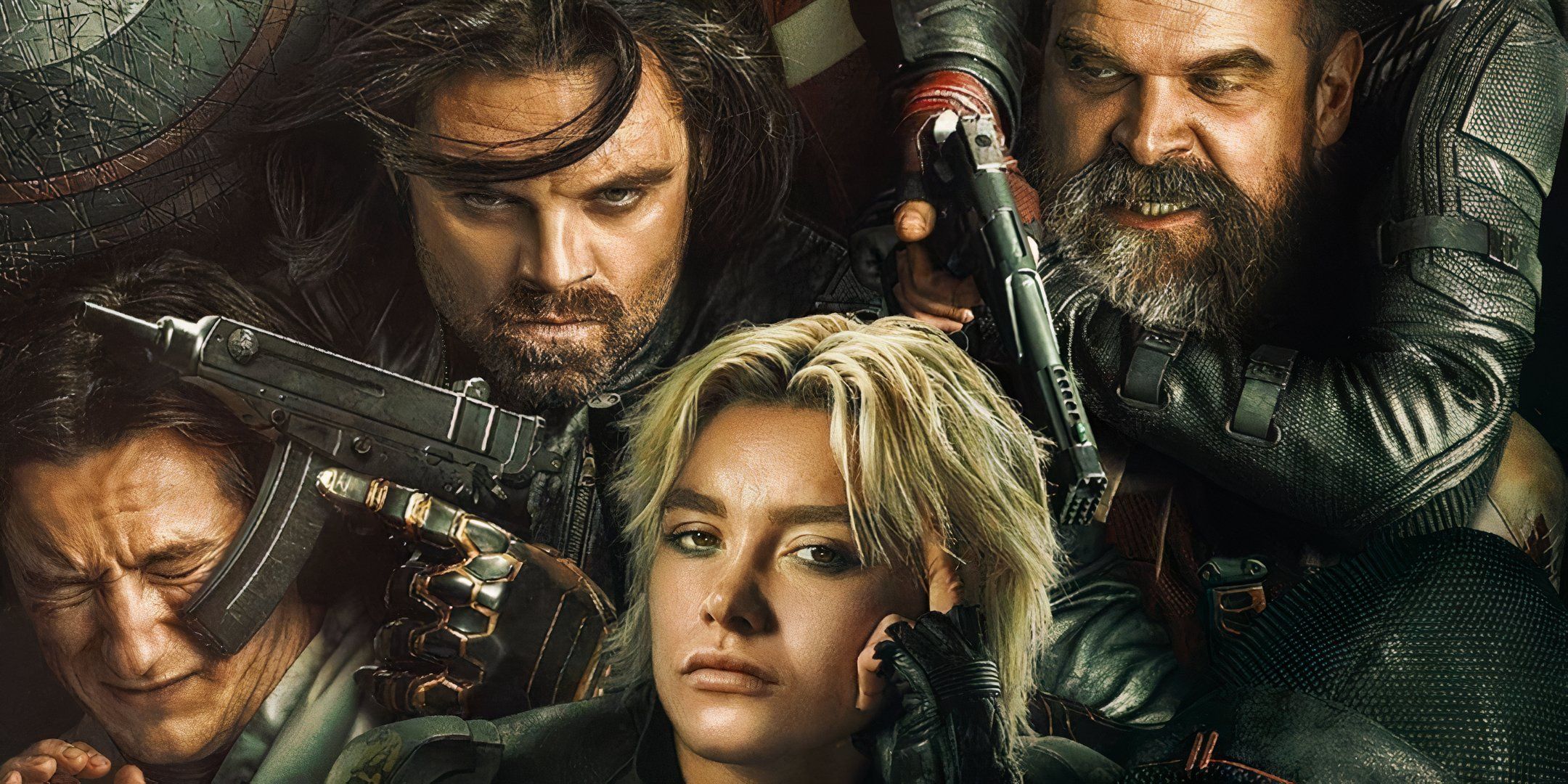
Related
Thunderbolts*: The Meaning Of The Asterisk, Explained
So, what’s up with that asterisk at the end of the title? Here’s the spoiler-filled answer.
Lee also represents the toxic Ego and vanity behind Abel. When you’re first introduced to his character, Lee is seen admiring his handsomeness in the mirror.
Another symbolic moment of this in the film is the scene of Abel cursing out his girlfriend he’s trying to win back by going on a toxic rant over voicemail, saying that he “loves her” but that she broke his heart, turning things uglier by saying “she didn’t win” and that she’ll be forgotten, but “I’ll be remembered because I’m a f*cking legend.”
During this chaotic sequence, Barry Keoghan’s Lee is seen surrounding Abel and drinking a bottle of alcohol, and then appears eerily behind him in the cracked dressing room mirror after The Weeknd throws his phone at it, like a dark parasite tethered to him, fueling his toxicity.
In an interview with Variety, The Weeknd described how the loss of his voice on stage in 2022 was due to “a lot of self-imposed pressure.” Barry Keoghan’s Lee is the personification of that self-imposed pressure The Weeknd put on himself.
The Clash Between Anima And Lee
As Ortega’s Anima is in the middle of her session of confronting The Weeknd with his songs and trying to break through to him about all the pain that’s in them while he’s tied up, Lee, the Id, shows up, and the sound design of Lee banging on the door makes it feel like an interruption.
The Id is trying to break through the door and destroy the progress Anima has just made with Abel. That’s why she quiets Abel with a pillow, so the Id can’t hear his voice and know he’s there.
When Anima doesn’t allow Lee into the room and tells him off, the Ego is bruised, and he kicks open the door and gets into a struggle to try to subdue Anima. However, Anima wins the struggle by killing Keoghan’s Lee.
This becomes a symbolic moment of The Weeknd’s Self letting the anima and more emotional side take over and saying goodbye to the pleasure-seeking and toxic destructiveness that affected him deeply in his psyche.
This ultimate acceptance and validation of his betterment and honesty allow him to regain his voice and sing ‘Hurry Up Tomorrow’ and prove himself to Anima. You also see a transition where Jenna Ortega and Abel’s faces beautifully morph as one, further symbolizing this synthesis.
What The Weeknd goes through in the film is all a psychological journey of trying to break free from his own head and past vices to shed his former persona to return as a better, more enlightened artist who will have healthier relationships. It finally gives him the confidence to go out on stage and become a changed person, as the final scene conveys.
And remember, the film is told through the perspective of The Weeknd, who’s an unreliable narrator, so even if certain things might seem strange, like Barry Keoghan and Jenna Ortega’s Id/Ego and Anima characters existing and having interactions with other characters, it’s still told through the psyche of Abel.
Furthermore, the song lyrics to Hurry Up Tomorrow help reflect and summarize everything that led up to this moment, symbolizing this entire journey Abel took in the film through his psyche, especially the “Tie me up to face it, I can’t run away, and I’ll accept that it’s the end” and “I’m done with the lies, I’m done with the loss” and “I want to change” bits.
Abel Tesfaye has discussed possibly retiring his persona, The Weeknd, after Hurry Up Tomorrow.
In an interview with Discussing Film, director Trey Edward Shults shared how his parents were both therapists and that he was very interested in Carl Jung’s The Red Book. He also had the following to say about Hurry Up Tomorrow, though noting he wants to leave it up to your interpretation and not put a bow on things:
If you want to reinterpret [Hurry Up Tomorrow] as a Jungian dream analysis, then maybe none of it actually happened… You could talk about Abel as his character representing the self, The Weeknd representing the persona, his manager Lee (Barry Keoghan) representing the id and ego, and Jenna Ortega representing the Anima and this confrontation Abel needs to have with himself.
The Weeknd’s Nightmare Sequence And Sleep Paralysis, Explained
In an interview with The Fader, The Weeknd also stated how he struggles with sleep paralysis, describing it as being half-awake and half-asleep and seeing a mysterious and scary shadow in the room with him, a shadow that appears in various key sequences in Hurry Up Tomorrow, like the bathtub moment before his show.
The song lyrics of ‘Baptized in Fear’ allude to this ‘Shadow’, with verses such as “I fell asleep in the tub, I was met with paralysis.” And then “Figure in the corner, I can’t quite see. I just know the shadow’s staring at me. It gets closer, it gets closer, it gets closer now.”
One of the most profound and symbolic moments in the film is the nightmare sequence after the first night in the hotel when Abel is knocked out by Anima.
Abel is seemingly free to get up out of his bed, and it feels like déjà vu from the past day with Anima singing a tune in the shower, but when he steps out of the room, the hotel is eerily empty and feels like the hotel section from Silent Hill 2.
When he goes out onto the street, it’s like the world has stopped, as it’s also completely dead quiet with not a person in sight. When he comes back to the hotel to use the elevator to return to his room, it instead drops him down to the basement level, leading him to a dark tunnel that evokes the atmosphere of Insidious’ Further dimension.
Lying in his path is a creepily placed woman in his path who looks in a bad state, which results in one of the best jump scare moments of any horror film. If you pay close attention, she is wearing the same dress that Abel’s girlfriend had in his photos of her, thus representing his attachment to her memory in the dark tunnel of his psyche, still seared into the dark depths of his mind.
After escaping her in the tunnels, you see an image of The Weeknd in a snowy wilderness with a young child sitting before a fire.
The young child represents the young Abel Tesfaye, the innocent, sweet soul who’s now locked eye-to-eye with his older self in a cathartic moment of The Weeknd exploring the depths of his subconscious, showing how the memories of his innocence have been buried through all that darkness.
You’ll also see a vivid shot of Abel being consumed by the flames of the fire, alluding to his titular song ‘Hurry Up Tomorrow’ from the album, which has the lyric: “Wash me with your fire.” The director even said that certain scenes will feel poetic to the album.
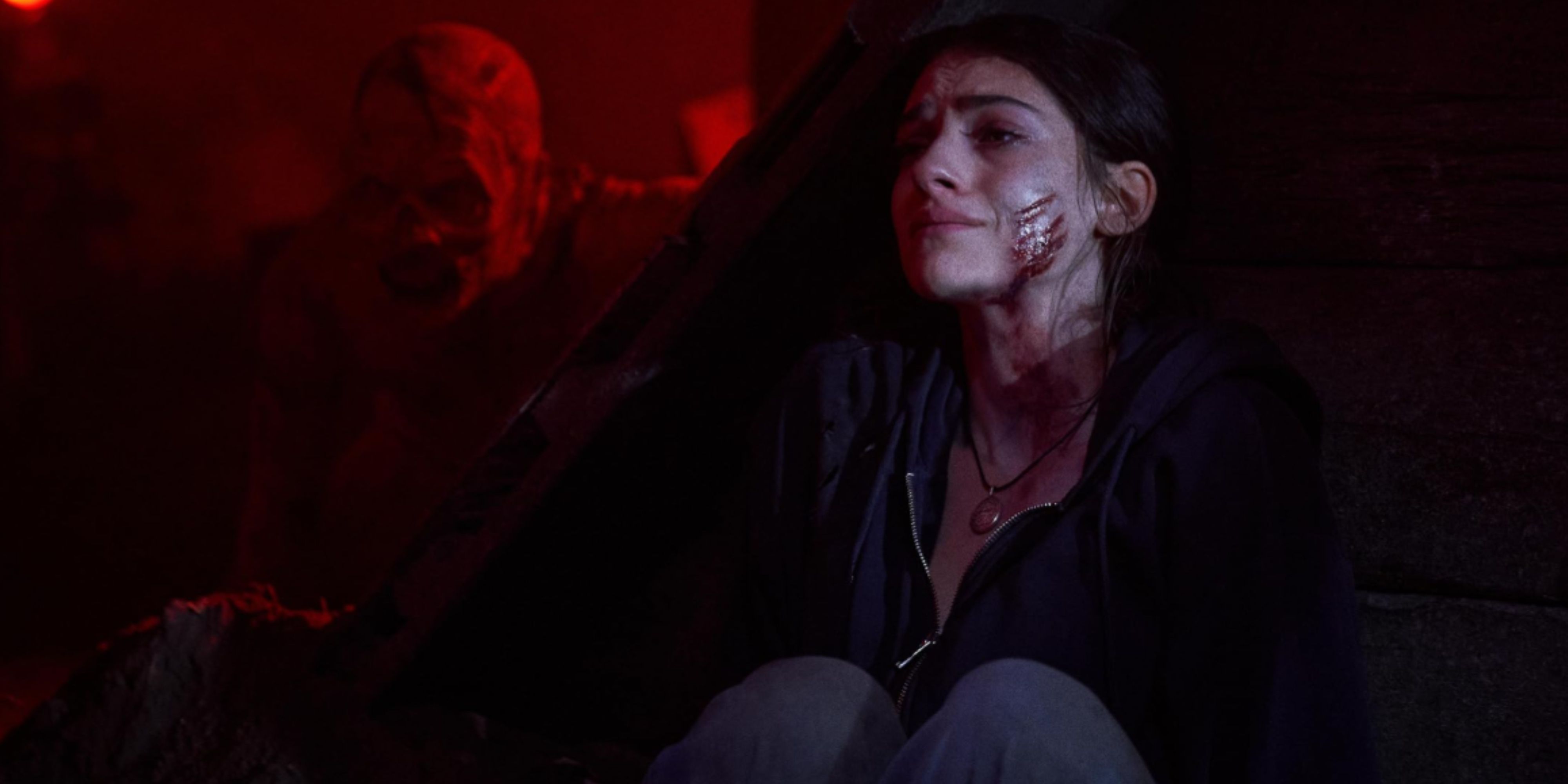
Next
Until Dawn Movie: Ending, Explained
The Until Dawn movie adaptation has a pretty different story from the game, so it’s understandable if that ending left you with questions.

